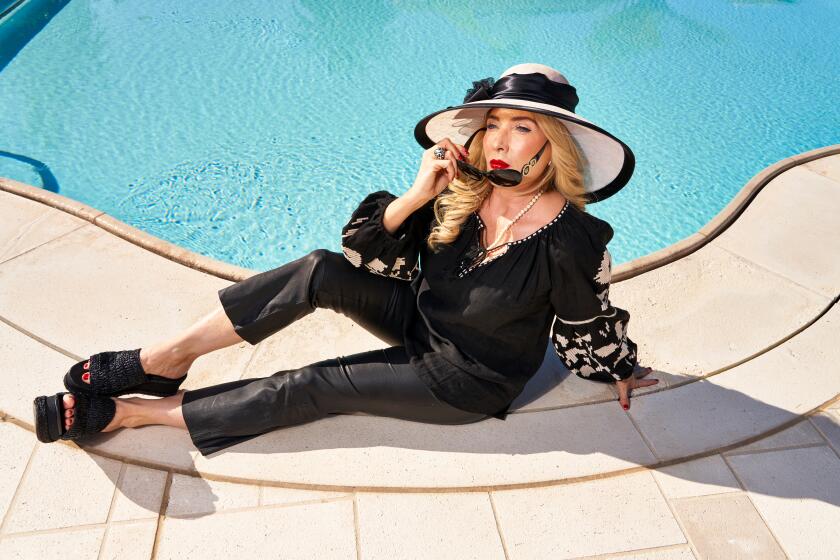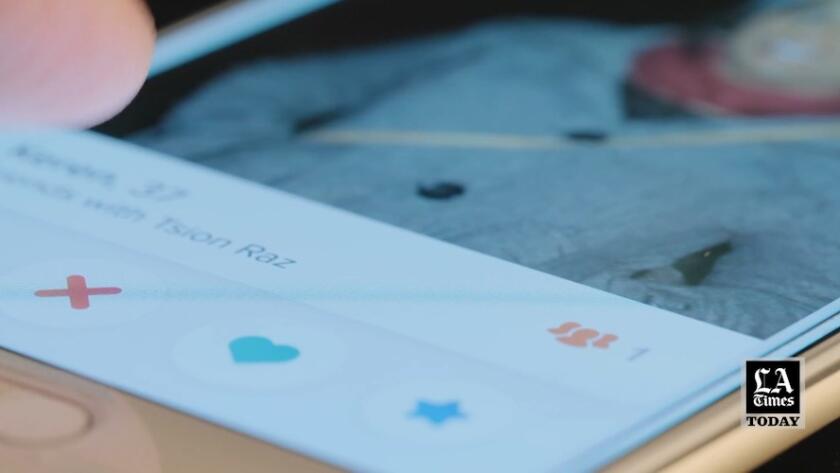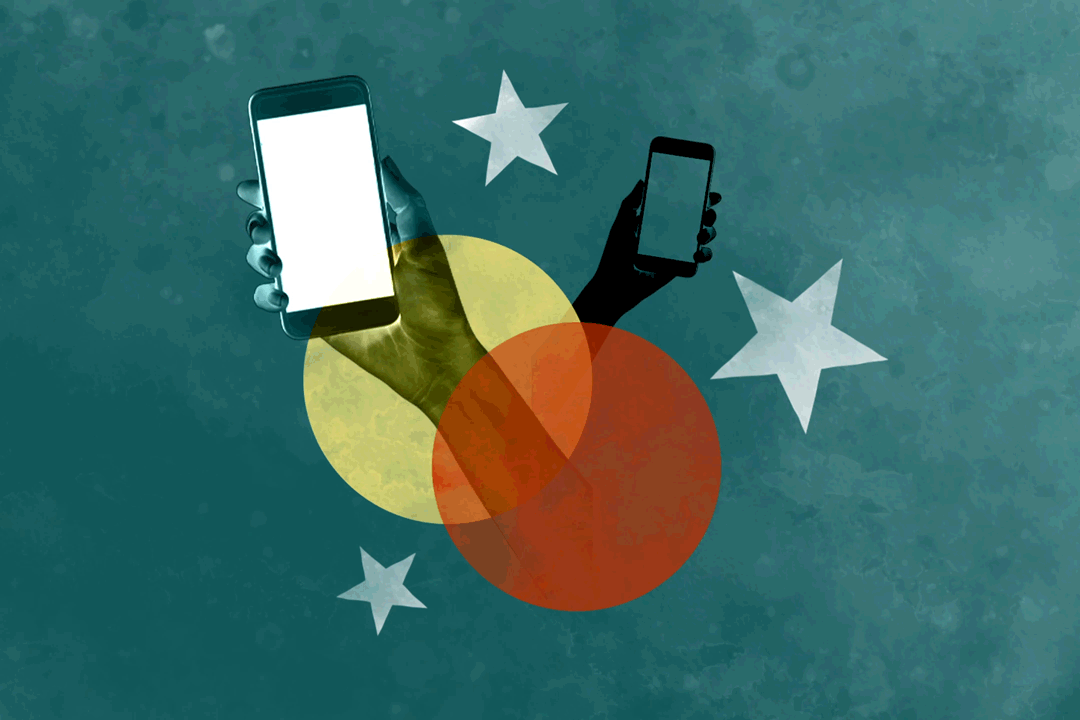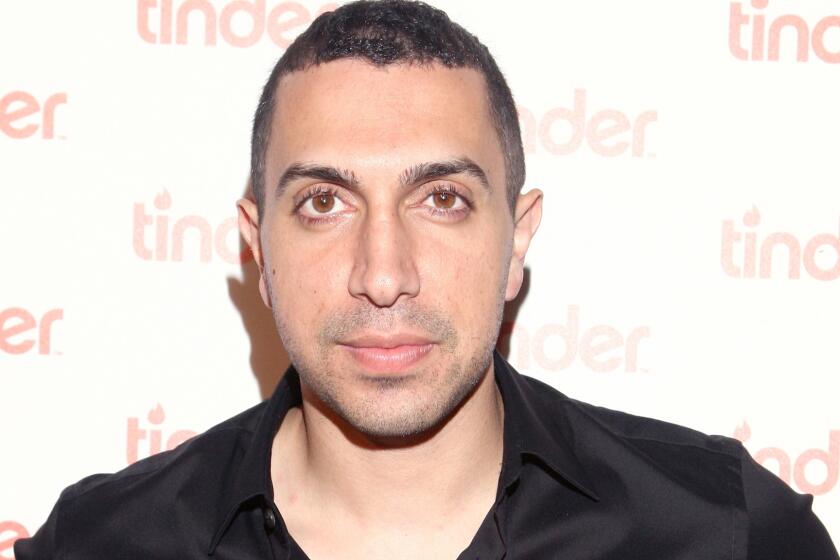Gen Z is ready to break up with Tinder, and these new dating apps are here for the rebound
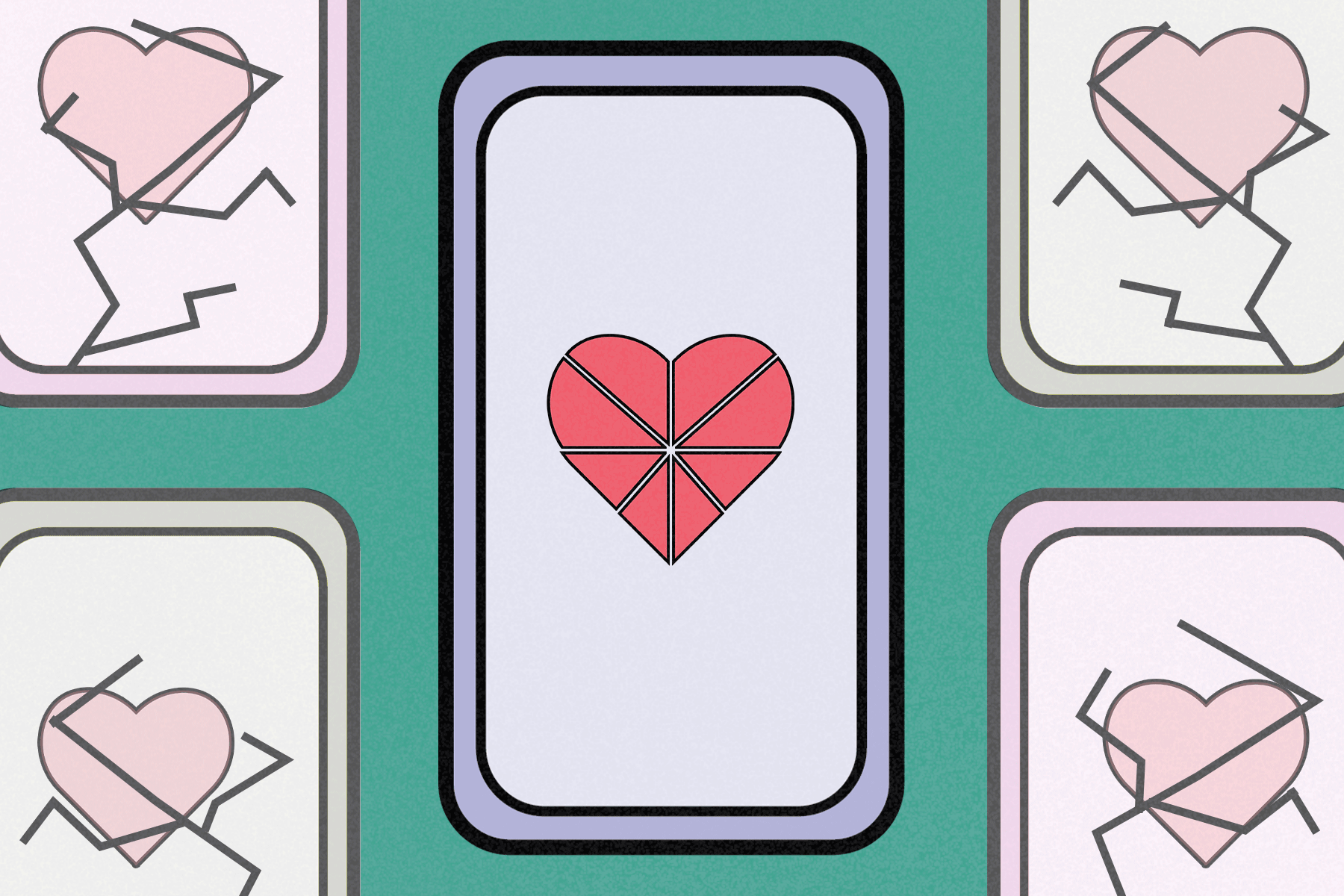
- Share via
With Valentine’s Day looming, Steven Coyle was on his phone looking for a date — but not on Tinder.
The 26-year-old from Las Vegas used an app called Snack to scroll through videos of women walking down the street, showing off their outfits, or lip-syncing to the camera.
One caught his eye — a tall, pretty blond recording herself walking through Disney California Adventure Park to the Avengers Campus, where she ordered a cocktail at the bar.
She looks fun, he thought. He pressed a heart to “like.”
Coyle had stumbled upon Snack, an app that bills itself as “TikTok meets Tinder,” just a few days earlier. It’s one of a handful of innovative dating apps that are trying to capture the attention of Gen Z, many of whose members say they are tired of the apps that have dominated the online dating scene for nearly a decade — Bumble, Hinge and, above all, Tinder, which popularized the now-ubiquitous “swipe to match” user interface.
Looking for love with someone who shares your Myers-Briggs personality type, or your love of video games? Want to see a blurry photo of your prospective partner that gets progressively sharper the longer you chat? The options abound.
Heterosexual couples in the U.S. are now more likely to meet a romantic partner online than via any other mode of connection. A 2017 survey found 39% of such couples reported meeting their partner online, compared with 22% in 2009. Nearly half of all 18- to 29-year-olds say they have used a dating app in their life, according to a 2019 Pew Research Center study.
You can’t put a price on love, but Amber Kelleher-Andrews has put a price on finding it: $30,000 to $300,000 a year for her elite matchmaking services.
And during the pandemic, online dating reached new heights — with Bumble reporting a 70% increase in video calls and Tinder exceeding 3 billion swipes in one day for the first time in March 2020.
“Dating apps provide that opportunity for you to meet people outside of your typical circles that you would be in day to day and I think that’s really powerful — people say opposites attract,” Snack Chief Executive Kim Kaplan said.
Underscoring its intention to court a new generation of daters, Snack eliminated the swipe gesture in favor of pressing a heart button or sending a message. Attempting to swipe brings up the cheeky error message “swiping is old af.”
“Swiping is 10 years old now,” said Kaplan, who was one of the first employees at Match.com and involved with the dating app Plenty of Fish, which eventually was sold for $575 million.
That’s not all that’s been freshened up. Users upload TikTok-style videos instead of photos, there’s no field for a bio, and you can even upload videos to an Instagram-style “story” that people can view after you match with them.
- Share via
Watch L.A. Times Today at 7 p.m. on Spectrum News 1 on Channel 1 or live stream on the Spectrum News App. Palos Verdes Peninsula and Orange County viewers can watch on Cox Systems on channel 99.
TikTok, where Snack advertises, played a major role in its creation. Kaplan was scrolling through the app one day in early 2020 when she came across a video of a woman introducing herself with her name, age and star sign. Her caption included the hashtag “#single.” Kaplan realized she had discovered an entire “underbelly” of dating already occurring on TikTok.
It clicked: A video-first dating app was the logical next evolution of dating.
She encouraged her Gen Z employees and investors to incorporate their voices and feedback into the development of Snack.
They told her most people of their generation only used the swiping apps because they had to, preferring to move the conversation to a more casual social media platform such as Instagram or Snapchat as quickly as possible.
Taking a page from the early days of Tinder, the company is focusing on on-the-ground promotion at college campuses and currently has the most users in California, Texas, Florida and New York. The app is available only to those ages 18 to 35.
There’s a new astrology-based dating app in Los Angeles and New York. “Skeptics welcome,” says the makers of Struck, who say that pairing people based on zodiac signs is a great way to meet your match.
It also produces a dating show streamed live every week on TikTok. Although Kaplan declined to disclose user numbers, Snack, which launched in February 2021, was the 10th-most-downloaded dating app in the U.S. in August.
Schmooze, another dating app wooing Gen Z, is also organized around a form of digital content the generation has fallen in love with — memes.
Or, as CEO Vidya Madhavan put it, “Laugh your way to love.”
At first glance, Schmooze doesn’t seem like a dating app. Instead of people’s profiles, you’re immediately greeted with a meme set against a colorful, cartoon-like backdrop, with the choice to swipe right for “like” and left for “don’t like.”
After a certain amount of swiping, the app’s machine-learning model attempts to evaluate what kind of humor you like and your topics of interest, such as politics, pop culture or science. At that point, you’ll receive a “#MatchRec” with someone whose humor allegedly matches yours, leaving you with the choice to “Schmooze” or “Snooze.”
A few years ago, Madhavan was working in India and debating whether to go to graduate school. She cold-emailed someone who had attended a U.S. business school asking for advice. That first email led to more than 150 email exchanges filled with jokes and humor and, eventually, to marriage — as well as Madhavan’s conviction that humor is a good proxy for romantic compatibility.
“Meme-based dating fits so perfectly with this generation,” Madhavan said. “Because memes are the way we all communicate, right? Whether it’s sharing news or sharing how you feel.”
The 27-year-old Stanford business school graduate co-founded the company with college classmate Abhinav Anurag and launched the app as a beta test in early April 2021. It recently surpassed 300,000 users, with concentrations on the East Coast and in Los Angeles. (For scale, Tinder has about 66 million monthly users worldwide.)
Madhavan said the dating apps currently on the market are all essentially the same format — a profile and photos.
“Now, are you writing a longer bio? Do you have three prompts? Does the woman go first? Those are all things that change, but essentially every dating app has a profile and a photo,” Madhavan said. “And that means you have to have your profile to be so curated, to stand out.”
Tinder’s parent company says Sean Rad, the dating app’s co-founder and former CEO, illegally recorded conversations with executives.
By removing that burden, Schmooze attempts to turn dating into a more lighthearted, fun experience.
“And while you have fun, you’ll find a date,” she said.
When it comes to the question of looks versus personality, a dating app called Iris is taking the opposite approach to Schmooze’s — while also reducing the burden of self-presentation.
Returning to the fundamentals of physical attraction, the app, which was launched in early 2020, has users train a machine-learning algorithm by swiping through three rounds of stock photos. It then recommends potential matches where there may be mutual attraction, either locally or in the entire database through a “Super Search” function.
The founder, who has not come out publicly yet, said they aimed to re-create the experience of initial attraction when meeting someone in real life, independent of factors such as educational level, hobbies or political affiliation.
Iris is also offering a free round-trip plane ticket for any couples who match if they live too far away. All they have to do is email the company, though no one has taken it up on the offer yet, Chief Growth Officer Daniel Mori said.
Although Iris isn’t explicitly aimed at Gen Z, the company has seen success marketing on TikTok, which was its top source of user acquisition in its first year, Mori said. It has also formed a network of about 400 influencers to promote the app.
Aside from who you’re liable to meet, is there any real difference in the experience of looking for love on a Gen Z app?
Coyle, who has used Tinder and Bumble in the past, said Snack’s emphasis on video provides “more of a sense of this is what they actually do when they’re at a party or something, not just from a picture.”
But he has struggled with finding videos of himself to include in his profile and wasn’t sure how long he was going to last on the app.
It’s a “love-hate” relationship with dating apps that keeps bringing him back, despite the lack of success.
“Most of the time, I’m trying to find the wife,” he said.
More to Read
Inside the business of entertainment
The Wide Shot brings you news, analysis and insights on everything from streaming wars to production — and what it all means for the future.
You may occasionally receive promotional content from the Los Angeles Times.
